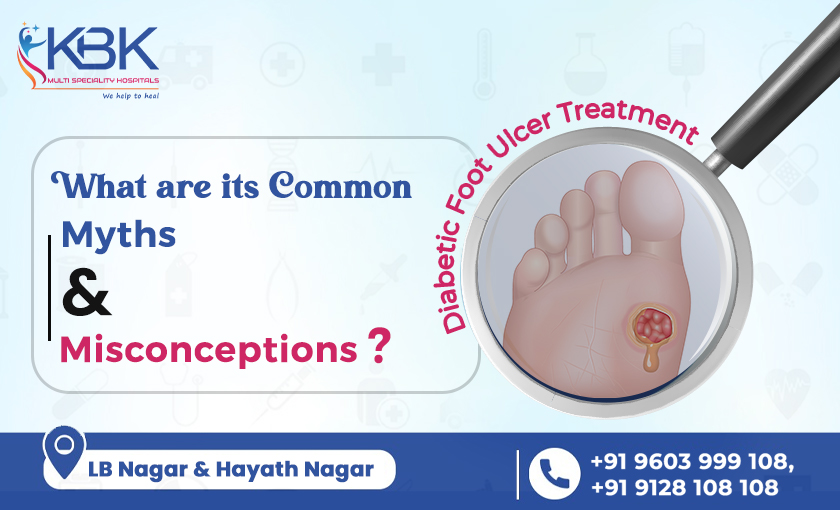Introduction –
Diabetic foot ulcer symptoms :
Recognizing the symptoms of a diabetic foot ulcer early is crucial for prompt treatment and prevention of complications. Here are some common symptoms to make note of:
Persistent Pain: A continuous, throbbing, or sharp pain in the foot, often at the site of the ulcer.
Open Sore or Wound: A sore, wound, or lesion on the foot that doesn’t seem to be healing or is slow to heal.
Redness and Swelling: The affected area may appear red, warm to the touch, and swollen.
Drainage or Pus: Any discharge, such as pus or clear fluid, coming from the ulcer can indicate an infection.
Foul Odor: A foul or unpleasant odor from the wound may also suggest an infection.
Black or Tissue Changes: Changes in the color of the skin or tissue around the ulcer, can indicate tissue damage or necrosis.
Increased Temperature: The skin around the ulcer may feel warmer than the surrounding skin.
Calluses or Corns: Increased pressure on certain areas of the foot can lead to the formation of calluses or corns, which can potentially develop into ulcers.
Numbness or Tingling: Some individuals with diabetes may experience neuropathy, which can make it harder to detect pain or sensation changes in the feet.
Foot Deformities: Changes in the shape or structure of the foot, like hammertoes or Charcot’s foot, may increase the risk of ulcers.
It’s essential for individuals with diabetes to regularly inspect their feet for these symptoms. If you notice any of these signs, consult a healthcare professional, preferably a podiatrist or your primary care doctor, for an evaluation and appropriate care. Early intervention is critical to prevent complications and promote successful ulcer healing.
Understanding Diabetic foot ulcers …..
Diabetic foot ulcers can be managed and, in some cases, reversed. Still, it’s essential to understand that the process can be complex, and success depends on various factors, including the severity of the ulcer and the patient’s overall health. Here’s what patients with diabetes should know about diabetic feet problems.
Early Detection is Crucial: Regularly inspect your feet for any signs of redness, blisters, calluses, or wounds, especially if you have diabetes. Early detection can prevent ulcers from worsening.
Manage Blood Sugar Levels: High blood sugar levels can impair circulation and delay wound healing. Control your blood sugar through proper diet, medication, and regular monitoring.
Foot Care: Keep your feet clean and dry, but avoid soaking them for prolonged periods. Trim your toenails carefully, and moisturize your skin to prevent cracking.
Proper Footwear: Wear well-fitting, comfortable shoes to reduce the risk of developing ulcers. Avoid tight or pointy-toed shoes. Always check your shoes for foreign objects or rough spots inside.
Regular Check-ups: Schedule regular check-ups with a Diabetic foot care clinic in Hyderabad particularly a diabetologist who specializes in foot care for diabetics. They can help identify and manage issues early.
Ulcer Management: If you develop an ulcer, seek medical treatment of diabetic foot immediately. The treatment may involve wound cleaning, debridement (removing dead tissue), and dressing changes. Some ulcers may require antibiotics.
Other Factors which involve, such as….
Offloading Pressure: In many cases, offloading the pressure from the affected area is crucial. This may involve using custom-made orthotic insoles or special footwear to reduce pressure on the ulcer.
Vascular Assessment: If poor blood circulation contributes, your healthcare provider may recommend tests to evaluate your vascular health.
Nutrition: A well-balanced diet rich in nutrients, especially protein, is essential for proper wound healing. Consult a dietitian if necessary.
Smoking Cessation: Avoid smoking. Smoking impairs circulation and delays wound healing.
Follow Medical Advice: Adhere to your healthcare provider’s recommendations regarding wound care, medications, and any necessary lifestyle changes.
Monitor Progress: Keep a close eye on the progress of your wound. If it doesn’t improve or worsen, contact your healthcare provider promptly.
Conclusion –
A Diabetic Foot Clinic in Hyderabad can offer the best treatment for curing foot ulcers. Diabetic foot ulcer treatment in Hyderabad is available from some of the best diabetes specialists such as from KBK Multispeciality Hospitals. Availing of their services by consultation and appointment is now made simple.
FAQs
1. Can Diabetic feet be reversed?
Reversing a diabetic foot ulcer depends on many factors, and some ulcers may not fully heal. However, with diligent care and early intervention, many people with diabetes can successfully manage and heal their foot ulcers, preventing complications such as infections and amputations.
Working closely with your healthcare team, including a diabetes specialist or the best diabetic foot surgeon in Hyderabad is important to develop a personalized care plan tailored to your specific needs and circumstances.
Early prevention and proactive management are key to minimizing the impact of diabetic foot ulcers.
2. Is walking good for diabetic foot?
Yes, walking is generally beneficial for diabetic foot health when done in moderation. It helps improve circulation, manage blood sugar levels, and maintain overall foot function. However, it’s important to choose appropriate footwear and avoid excessive stress on the feet to prevent injury and ulcers.
3. How long is the treatment for diabetic foot?
The duration of treatment for diabetic foot varies widely depending on the severity of the condition. It can range from a few weeks for minor ulcers to several months or longer for more severe cases. Regular monitoring and follow-up care are crucial for successful treatment.
4. Is Diabetic foot pain permanent?
Diabetic foot pain isn’t necessarily permanent. With proper management of diabetes, wound care, and lifestyle adjustments, many individuals can alleviate or significantly reduce foot pain. However, in some cases, neuropathy-related pain may be long-lasting, so early intervention is vital for better outcomes.
5. What is the Natural treatment for foot ulcers?
Natural treatments for foot ulcers may include keeping the wound clean, applying honey or aloe vera for their potential antibacterial properties, and managing diabetes through diet and exercise. However, always consult a healthcare professional for proper guidance and to ensure the ulcer receives appropriate care.

